Easy Sfogliatelle Ricce: the Quick Recipe for the Neapolitan Dessert Using Puff Pastry

Easy Sfogliatelle (pronounced sfol-ya-tel-le) are a delicious and fragrant dessert made with ricotta cheese, sugar and chocolate chips. A revisitation of the famous Neapolitan original version, unlike the latter, they are prepared in just a few minutes, and without the aid of a pasta machine or any particular equipment. To bring them to the table, simply cut out many rectangles from the ready-made puss pastry, make small incisions on half of each rectangle, fold them on themselves and fill them with ricotta, previously mixed with sugar and chocolate.
Once closed like a triangle and dusted with a little granulated sugar, they are baked for 20 minutes and sprinkled with an impalpable layer of icing sugar: the result will be slightly caramelized parcels, with a soft and delicious centre, perfect to serve as a dessert after a meal, or to enjoy for breakfast or as a snack with a cup of tea or coffee.
Italian Sfogliatelle's Origins
The origins of the Italian sfogliatelle, a beloved pastry, trace back to the 17th century in the Campania region, particularly within the confines of a monastery in Conca dei Marini. Legend has it that a nun first created sfogliatelle to use up leftover semolina by mixing it with lemon liqueur, sugar, and dried fruit, wrapping the mixture in dough. The pastry's name, meaning "small, thin leaf/layers," aptly describes its texture, characterized by its crispy, layered shell and rich, creamy filling. Over time, sfogliatelle have evolved into two main variations: the riccia, which is crisp and flaky, and the frolla, which features a softer, shortcrust pastry. Both versions have secured a cherished place in Italian culinary tradition, celebrated for their intricate preparation and delightful flavors.
Another variation of classic Italian sfogliatella is the lobster tail pastry. Very popular also outside of Italy (especially in the USA), the lobster tail is slightly larger and uses different ingredients than the sfogliatella. The lobster tail is filled with choux pastry before baking to make it puff up easily, so it can then be filled with a mix of whipped cream and ricotta or custard.
Tips for Making the Best Easy Sfogliatelle
– The main precaution to take with this recipe is to collect the ricotta cheese in a narrow mesh strainer and let it drain from the whey for a few hours. This way, it'll remain dry and compact during cooking, and the sfogliatelle will result crunchy on the outside and creamy on the inside.
– If you prefer, you can replace the chocolate chips with candied orange peels, raisins or a few spoonfuls of jam.
– You can flavor the ricotta cheese with vanilla essence, a pinch of cinnamon or bitter cocoa powder.
– If you like, you can add a bit of custard to the ricotta cheese filling.
Other Neapolitan Recipes You Might Like
Sfogliatelle Frolla with Custard
Neapolitan Pastiera (Easter Pie)
How to Store Easy Sfogliatelle
You can store your easy sfogliatelle in the fridge, inside of an airtight container, for a maximum of 1-2 days.
When serving, we suggest heating them in the oven for a few minutes: this way, they will return as fragrant as if they're freshly baked.
Ingredients
How to Make Easy Sfogliatelle
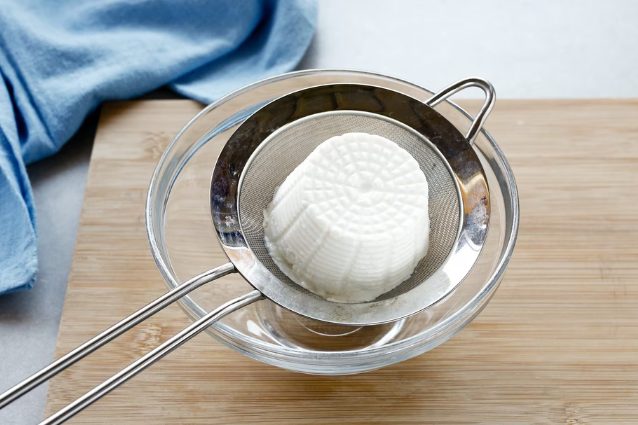;Resize,width=712;)
Collect the ricotta in a narrow mesh strainer, place it over a bowl, and let it rest in the fridge for at least 5-6 hours.
Collect the ricotta in a narrow mesh strainer, place it over a bowl, and let it rest in the fridge for at least 5-6 hours.
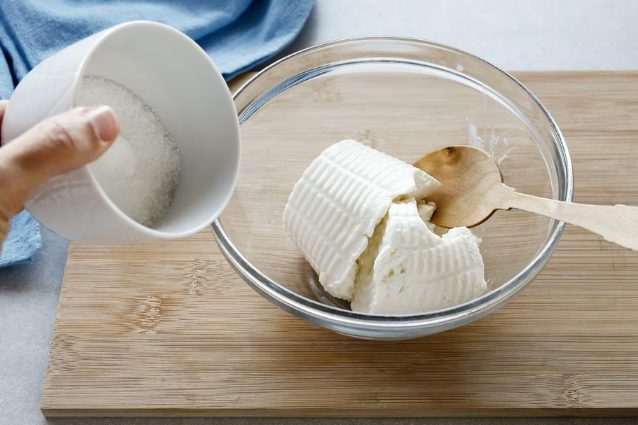;Resize,width=712;)
Once drained from the whey, collect the ricotta in a container and add the sugar.
Once drained from the whey, collect the ricotta in a container and add the sugar.
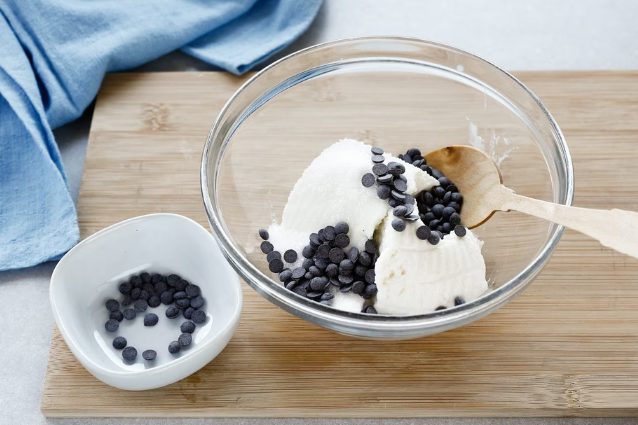;Resize,width=712;)
Add the chocolate chips and mix well with a spatula until you obtain a creamy mixture.
Add the chocolate chips and mix well with a spatula until you obtain a creamy mixture.
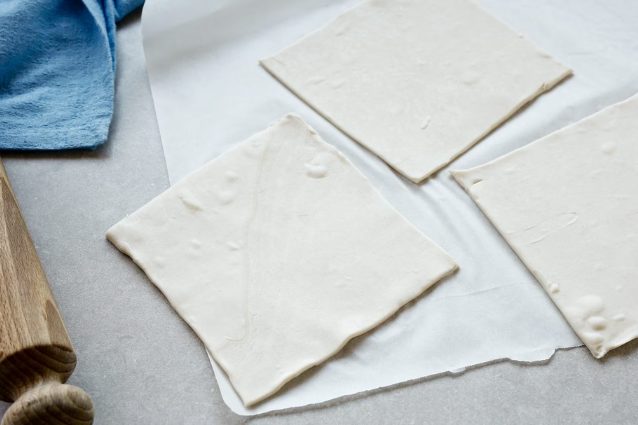;Resize,width=712;)
Unroll the puff pastry, flatten it lightly with a rolling pin and cut out 6 rectangles measuring approximately 5,1 x 6,6 inches.
Unroll the puff pastry, flatten it lightly with a rolling pin and cut out 6 rectangles measuring approximately 5,1 x 6,6 inches.
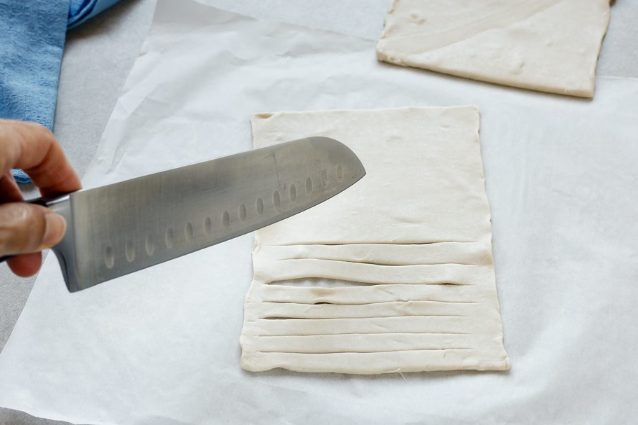;Resize,width=712;)
With a sharp knife, make a series of incisions on half of each rectangle, approximately 3,1 inches apart: in this way the pasta will swell during cooking, giving the puff pastries their characteristic appearance.
With a sharp knife, make a series of incisions on half of each rectangle, approximately 3,1 inches apart: in this way the pasta will swell during cooking, giving the puff pastries their characteristic appearance.
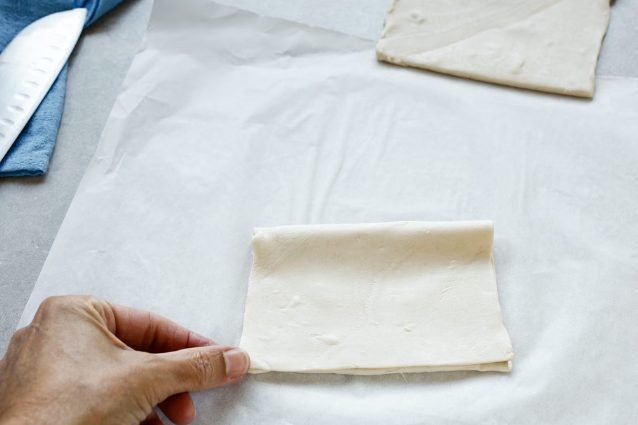;Resize,width=712;)
Fold each rectangle in half.
Fold each rectangle in half.
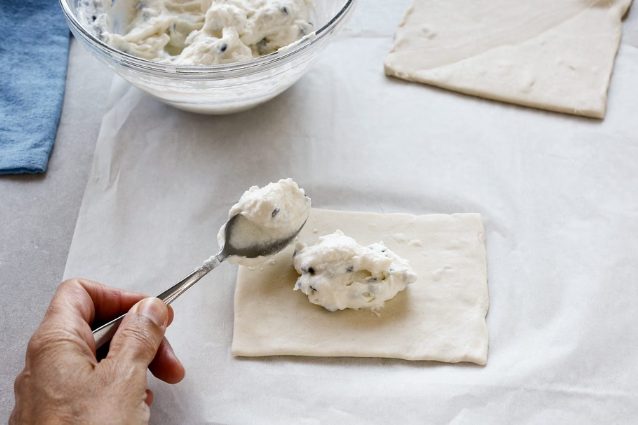;Resize,width=712;)
Place a spoonful of filling on the smooth half.
Place a spoonful of filling on the smooth half.
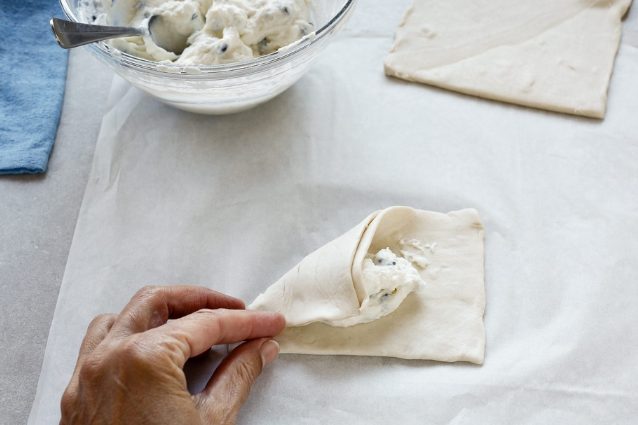;Resize,width=712;)
Fold one edge into a triangle, overlapping it with the filling.
Fold one edge into a triangle, overlapping it with the filling.
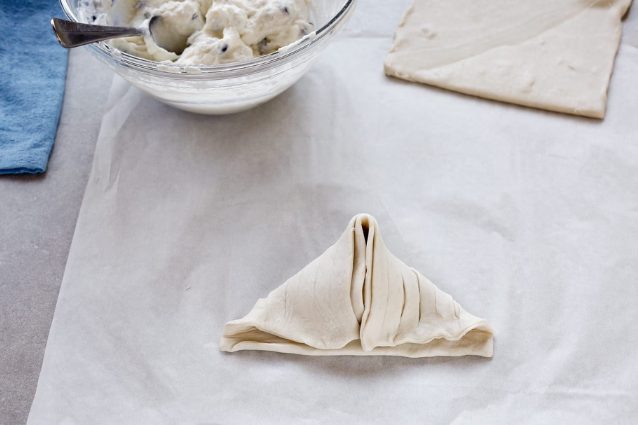;Resize,width=712;)
And proceed the same way on the other side too.
And proceed the same way on the other side too.
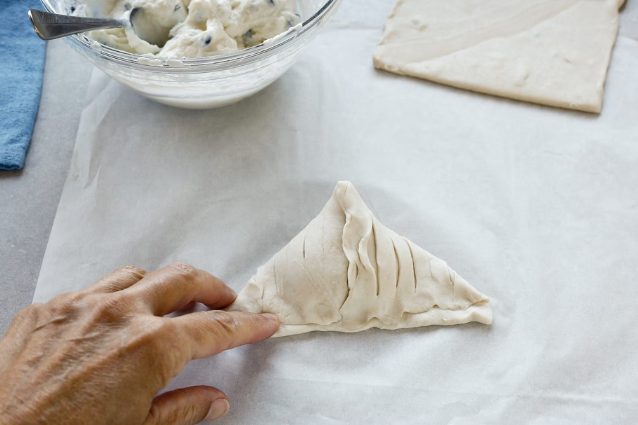;Resize,width=712;)
Seal the edges well with your fingertips and proceed in this way until you run out of ingredients.
Seal the edges well with your fingertips and proceed in this way until you run out of ingredients.
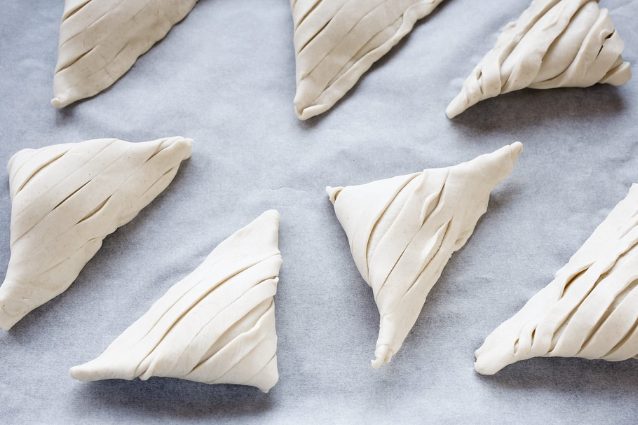;Resize,width=712;)
Place the puff pastries on a baking tray, lined with baking paper.
Place the puff pastries on a baking tray, lined with baking paper.
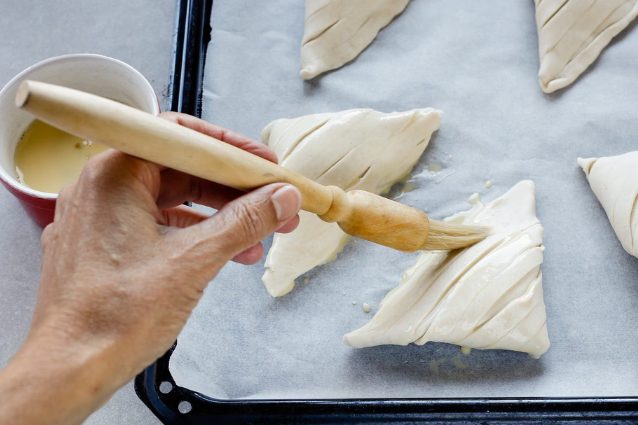;Resize,width=712;)
Brush them with the egg yolk, lightly beaten with the milk, sprinkle them with a little granulated sugar and place them in a preheated oven at 392°F/200°C for about 20 minutes.
Brush them with the egg yolk, lightly beaten with the milk, sprinkle them with a little granulated sugar and place them in a preheated oven at 392°F/200°C for about 20 minutes.
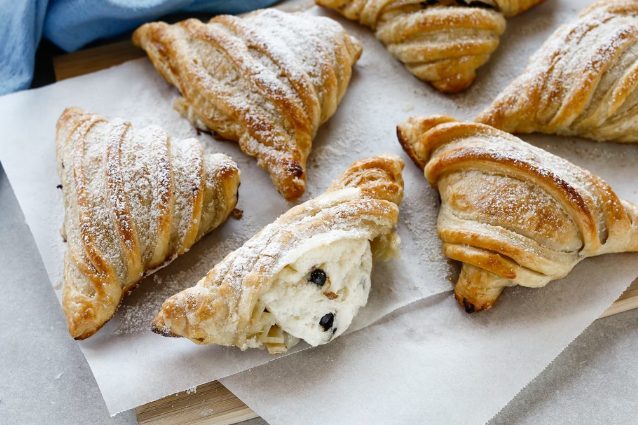;Resize,width=712;)
Once the cooking time has passed, take the puff pastries out of the oven and let them cool; then dust them with icing sugar, bring them to the table and serve.
Once the cooking time has passed, take the puff pastries out of the oven and let them cool; then dust them with icing sugar, bring them to the table and serve.
;Resize,width=767;)

;Resize,width=712;)

